BBG Watch Commentary
Of course, BBC and Russia’s RT had live Facebook feeds from the aftermath of the Barcelona terror attack. As you might have guessed, U.S. taxpayer-funded Voice of America (VOA) did not. Eventually, quite a while after BBC and RT went live on Facebook from Barcelona, VOA had a Facebook post with a short, previously recorded loop video from what we suspect to be is a Russian photographer in Barcelona because a Russian name was shown on the video clip.
When one compares BBC’s and RT’s “Likes,” “Comments,” and “Shares” with the VOA Facebook post on Barcelona, it is clear that both BBC and RT got many multiples of what VOA was able to get. VOA, which was slow to update its Barcelona news, simply got hammered not only by BBC but also by RT.
After four hours, BBC formerly live Facebook post was showing over 1.1 million total views. RT’s post was showing 205,000 total views. VOA was showing only 6,700 total views after three hours online since VOA was late in getting its Barcelona post on Facebook.
It is also worth noting that compared to the BBC and RT posts, the VOA post at the same time has outdated casualty figures.
In addition to 1.1 million total views (compared to VOA’s 6.7K), BBC’s Facebook post was also showing 31.7K likes, 5.1K comments, and 10.3K shares (31,700, 5,100, and 10,300).
VOA’s Facebook post with Barcelona video (but without any live segment) after three hours had only 37 shares, and 222 likes.
RT previous live video Facebook post with 205,000 total views showed 3.4K likes, 1.1K comments and 2.8K shares (3,400, 1,100, 2,800).
You don’t expect a medium size city newspaper like The Oregonian to have a live Facebook post on the Barcelona terror attack (it had a regular Facebook post on the attack), but The Oregonian was live on Facebook at about the same time the Barcelona attack took place with American Idol auditions in the city. The Oregonian‘s live Facebook post shows far better audience engagement figures than the VOA’ s delayed and not updated Facebook post on Barcelona supposedly targeting a worldwide audience. The Oregonian‘s Facebook post on the Barcelona attack had more likes, shares and comments than many of VOA’s Facebook posts even though The Oregonian has only slightly over 350,000 total page likes compared to VOA page’s claim of over 9 million. This is yet another indication that most of VOA’s Facebook followers were most likely acquired with the help of paid Facebook ads. They are a totally unengaged audience. Few ever return to read VOA posts. Money spent on these VOA Facebook boost ads was a waste of taxpayers’ dollars.
For many days, VOA has done also just as poorly on Facebook on the Charlottesville violence, as compared to BBC or RT. VOA observed at 3:23 PM last Saturday had no mention of the car incident in Charlottesville. BBC had it near the top of the BBC’s continuously updated story. VOA story time marked at 11:01 AM had no mention of the state of emergency being declared. BBC story had everything, including details of clashes between the protestors.
The Voice of America failed to report on President Trump’s Monday statement on Charlottesville violence for more than an hour after he had finished his remarks. Russia’s RT and BBC carried President Trump’s “racism is evil” statement live on Facebook; the Voice of America did not.
As of 11:00 PM EDT Thursday, BBC had over 750,000 total views for its Monday Trump video to VOA’s 47,000 views. RT had over 63,000 views. Again, VOA got hammered by BBC and beaten by RT on an official U.S. government news story.
For several years, we have been watching VOA’s sad decline as an international news outlet in the digital age. The marginalization of VOA English News online engagement has accelerated greatly in the last two years except for some of the click bait animal videos, which increased in numbers. There have also been VOA posts boosted with Facebook ads paid for by U.S. taxpayers.
About half of VOA’s English online traffic now comes from North America — something which is clearly against congressional intent — but the Broadcasting Board of Governors (BBG) and VOA’s senior management have done nothing to correct this. In fact, they have made it worse.
We see, for example, that a senior VOA correspondent tweets and retweets constantly about Donald Trump to his audience in the U.S., but he also gets at best a dozen or two likes and retweets, mostly from his American followers. They appear to enjoy greatly his confirmation bias reporting and almost exclusively post anti-Trump comments in response to his tweets and retweets. This VOA correspondent’s Twitter audience is clearly highly one-sided and clearly mostly American. Against congressional intent and U.S. law, VOA is now influencing U.S. public opinion in a highly one-sided way.
We think any VOA correspondent’s time would be much better spent on in depth, balanced coverage of American politics, tailored specifically for an international audience. Rather than tweeting to their U.S. audience and their American friends, VOA correspondents should be showing the United States as it is to their foreign audiences, not just focusing on with one or two U.S. fringe groups.
America’s image in VOA English News coverage is not anything like America we see in daily life. Many of us have yet to encounter a single racist or Antifa supporter. It seems that about every fifth house and business in neighborhoods where some of us live has an “Immigrants Welcome” sign. During the 2016 campaign, we did not see a single racist slogan. Some of us did see a few Antifa (radical fringe Leftists and Communists who call themselves anti-Fascists but show some of the characteristics of Fascist behavior) signs threatening violence, but that is far from defining life in any American city or town. By the way, until early July, VOA English News did not have a single mention of Antifa in any of its hundreds of reports on alt-right, neo-Nazis, anti-immigrant sentiments, and on Donald Trump as the alleged figure of “hate and prejudice” against immigrants and Muslims. (His wife is an immigrant.)
Considering that VOA content is now highly partisan, biased and nowhere near what the VOA Charter requires it to be, this is something that needs to be addressed quickly because millions U.S. taxpayers’ dollars are being wasted while some audiences abroad (for example, China) are desperate for uncensored news. At the same time, the BBG is spending hundreds of thousands of taxpayers’ dollars to prevent five VOA Mandarin Service journalists from working because they disagreed with the VOA director and tried to save VOA from damaging its reputation in China, which did happen because a previously announced live interview with Chinese whistleblower Guo Wengui was shortened on the orders of the VOA director Amanda Bennett.
As of 10 PM EDT Thursday, none of the three of the VOA Chinese Service Facebook posts on Barcelona, which were seven, three, and one hour old respectively, had more than ten likes each. Only one of the posts had two shares; others had none.
Three of the VOA Extremism Desk’s Barcelona Facebook posts, 13, 12 and six hours old respectively, had a few dozen likes in total but zero comments and only one share as of 10 PM Thursday.
Something is definitely very wrong with the way the Voice of America and the agency are managed. During the later part of the Cold War, VOA English News was never quite as good, but it was sometimes nearly as good as BBC News. During the same time, some of VOA foreign language services and Radio Free Europe (RFE) services had larger audiences than BBC foreign language services. These days, a medium size U.S. city newspaper can do better in a live Facebook transmission than VOA.
VOA’s lack of any significant audience engagement on social media on news stories as important as terrorist attacks is a serious problem in the age of hostile propaganda, disinformation and censorship. The Trump administration and the U.S. Congress need to fix this problem quickly, because the BBG CEO John F. Lansing, who has been there for nearly two years, has not been able to reform the agency. The Voice of America has in fact become more poorly managed than ever before.
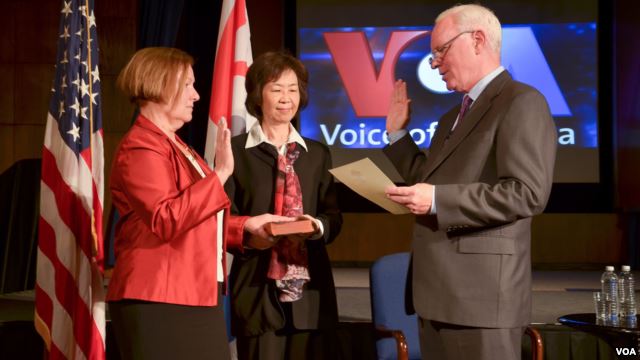
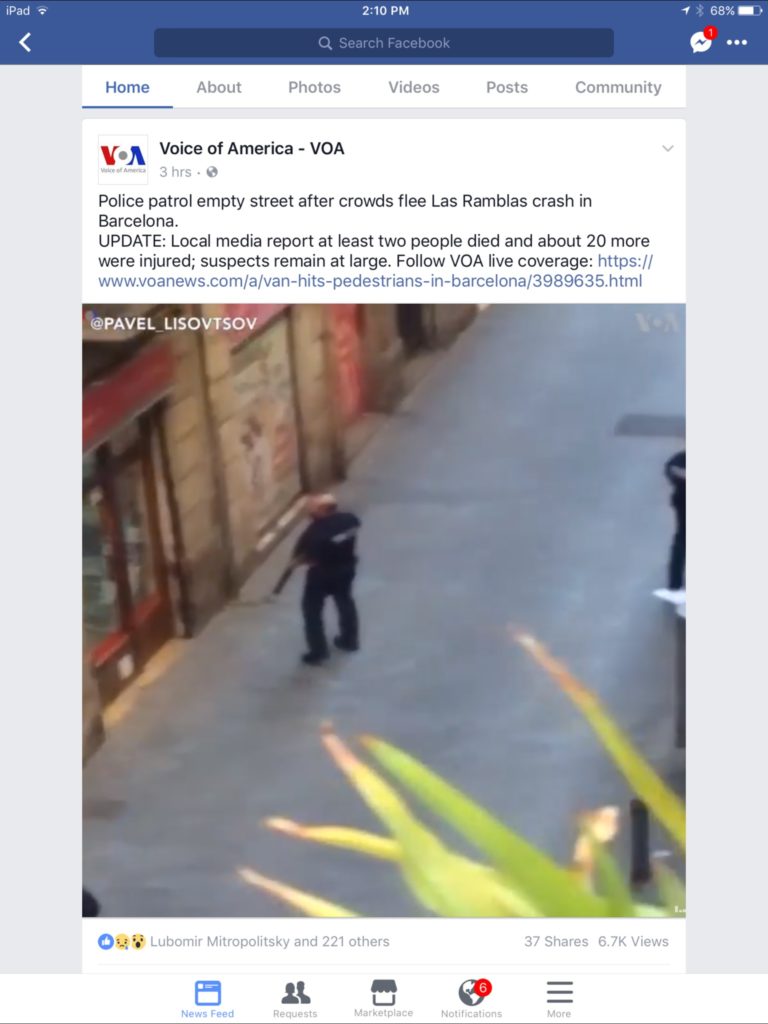
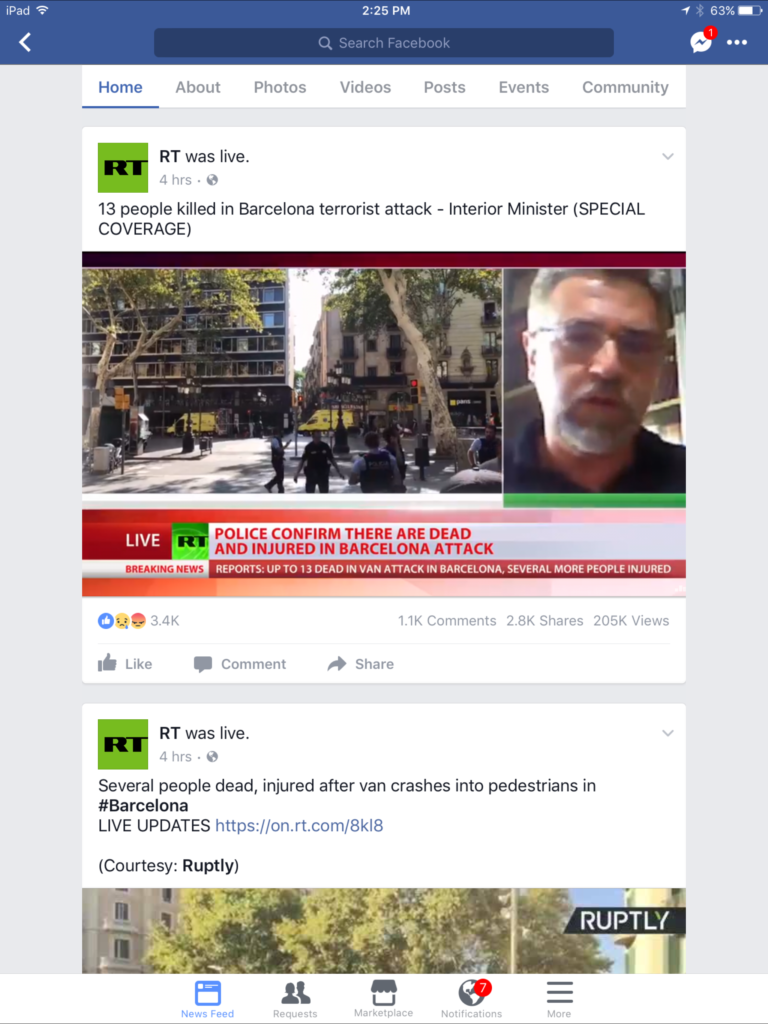
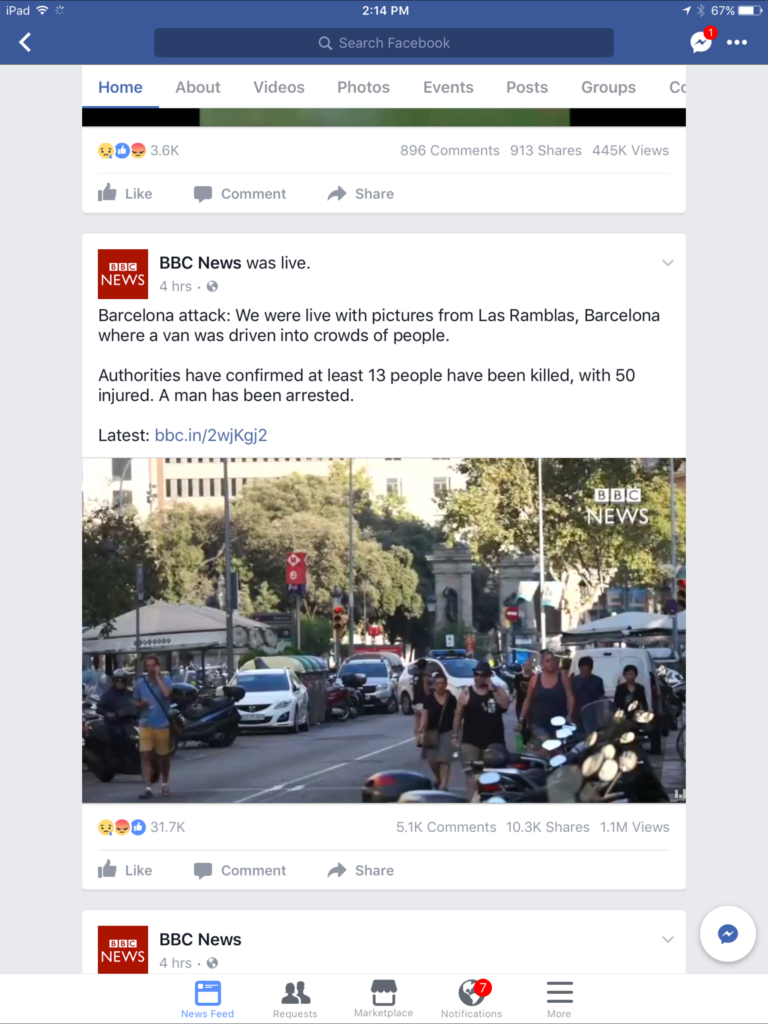
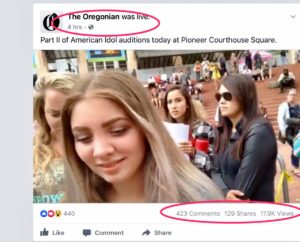
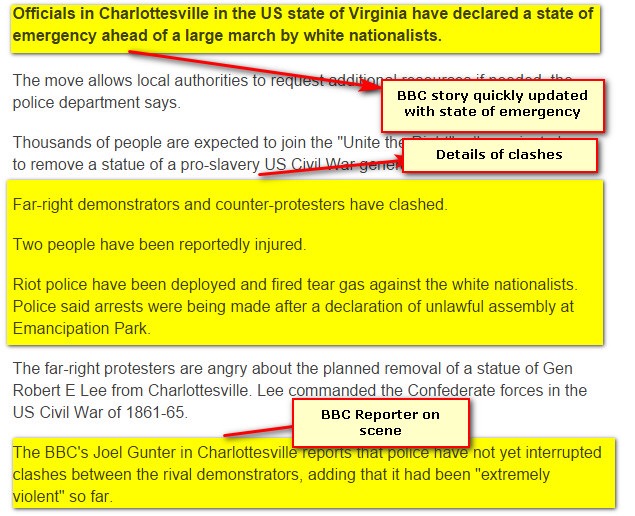
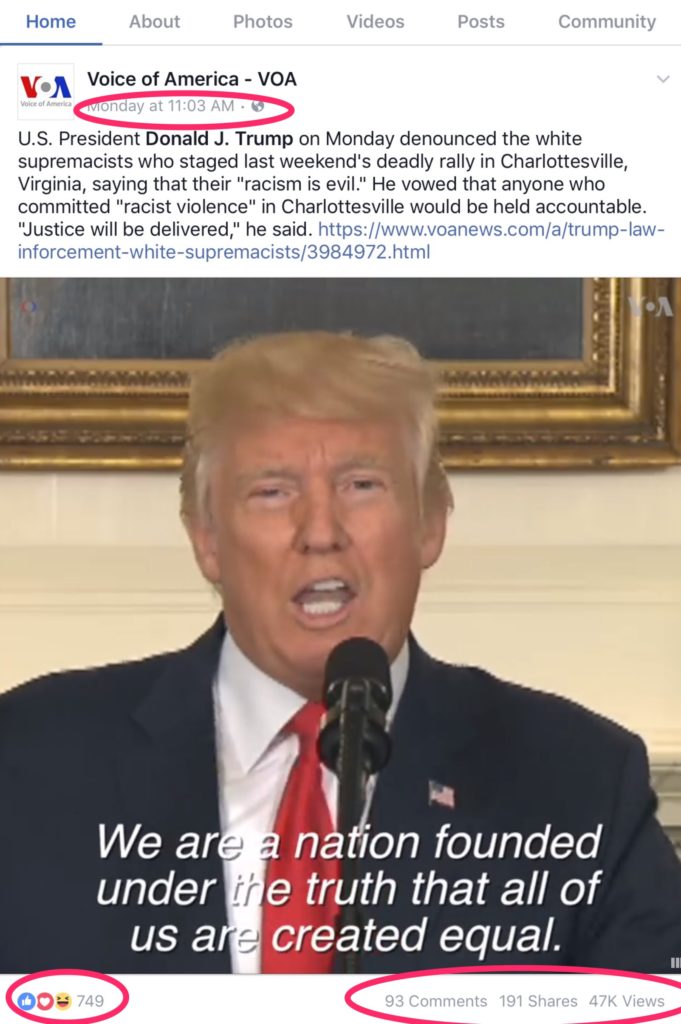


2 comments
Can’t do basics, yet STILL trying to hire an investigative team.
https://www.usajobs.gov/GetJob/ViewDetails/477530900
You ought to FOIA the amount VOA spends on social media campaigns…buying followers
Comments are closed.